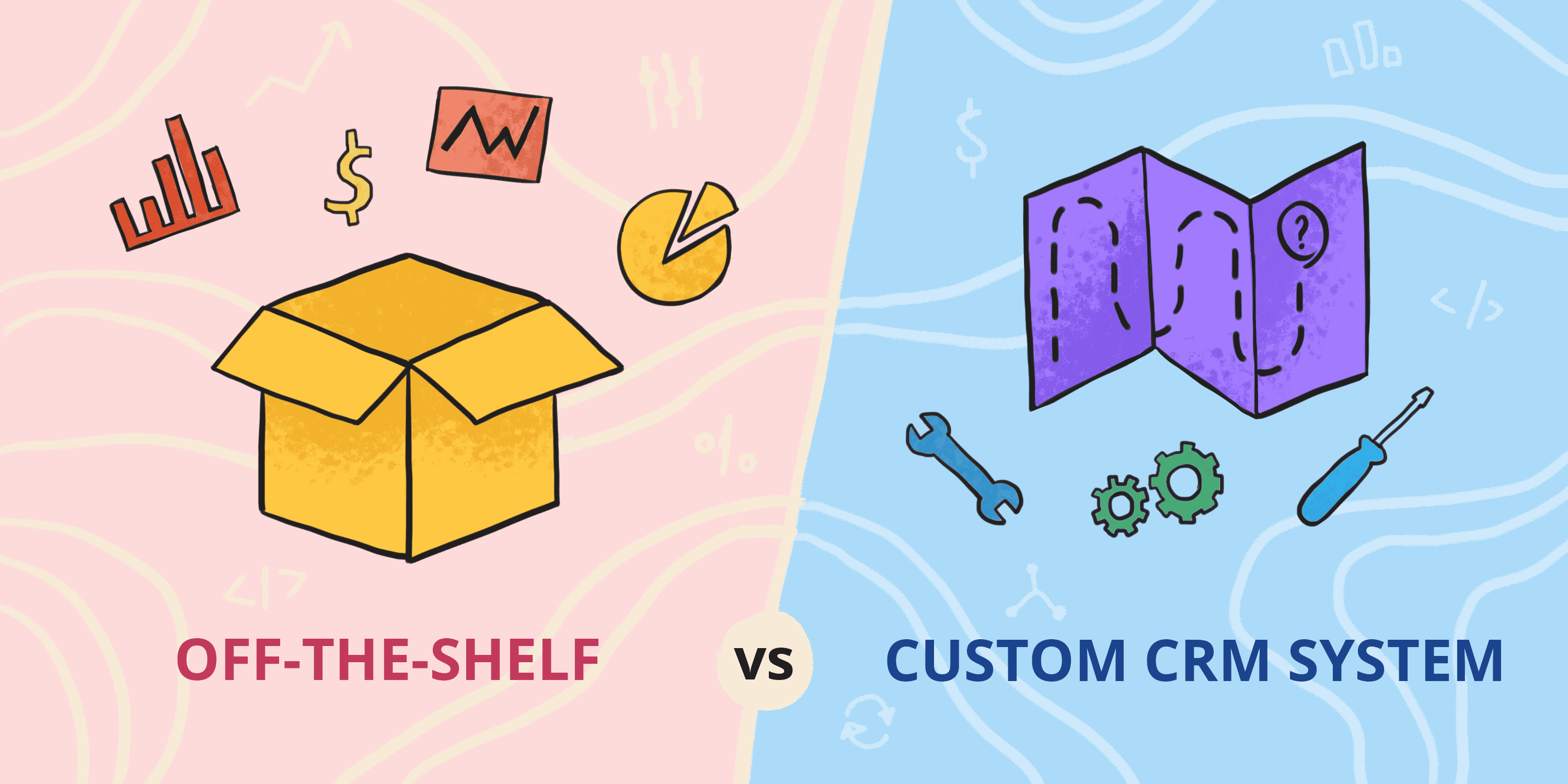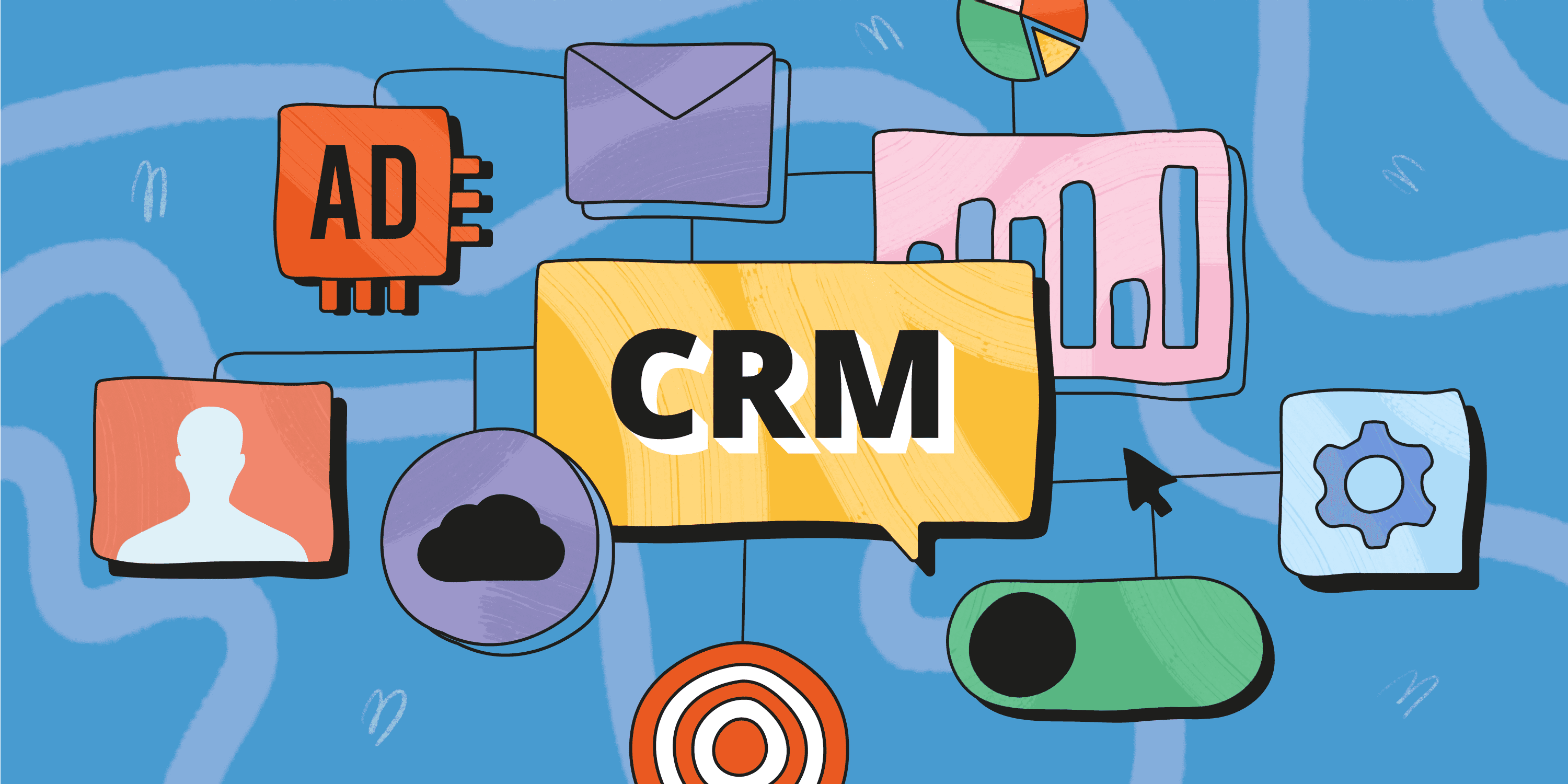Sales management is one of the most challenging aspects of a business cycle. It involves planning, recruiting, organizing, training, and supervising a company’s sales force, as well as setting selling objectives and monitoring leads. All of these processes can be overwhelming for a manager without the right tools.
This is why an effective sales management system is necessary to ease this burden and help businesses achieve their long-term goals by streamlining all sales operations.
But how to choose the most fitting sales management software?
Read on! We’ll explore how sales reps can manage sales processes with sales management tools and recommend some of the best platforms you can use in your teams.
Outline:
What is sales management software?
Sales are all about getting the right prospects and nurturing them at the right time.
Fortunately, there are modern sales management systems that can help you organize your leads in the pipeline step-by-step. Additionally, with sales management software, you can easily capture all customer data, so you don’t miss out on any critical information regarding sales.
Besides, these tools help managers track sales leads, organize customer contacts, and ultimately reduce administrative burdens. As a result, everyone can focus on more valuable tasks that can drive increased conversions.
To choose the right sales management solution, you need to be clear on your company’s objectives and look for options that can successfully cater to those needs.
Essential features of sales management software
Before choosing a tool for your needs, ask yourself:
- Will your software be able to provide employees with both on-site and off-site access?
- Can your software’s technology stack integrate seamlessly with your current sales operations?
- Can it support social media integrations?
Many sales management platforms offer similar features, so to ensure you don’t leave out essential aspects, here are a few must-have capabilities to look for:
Project planning
Planning is essential throughout a sales pipeline to know how to engage with customers at every stage and what steps to take next to close a deal. It also helps sales reps align their work with the goals set out for them.
Instead of manually doing this, sales management software should automate all business processes so you can plan, organize, and lay out deal stages in detail.
Project budgeting
An effective budgeting system is an integral part of your sales process. You need to know what part of the pipeline consumes most of the budget and determine if your team makes unnecessary expenses on prospects that won’t convert into loyal customers.
Team collaboration
Having in-built territory management or in-house team functionality is vital to structure your team and delegate tasks. This is of utmost importance, especially if you manage remote sales teams with your sales plan spread across multiple geographic locations.
Reporting
It’s essential to know when your leads interact with your company at different touchpoints. Sales management software can send a notification every time a prospect opens an email, mentions your brand on social media, or visits your website, so sales reps can strike while the iron is hot.
Top 8 sales management software
Here is a list of the top sales management software that can help you excel in your industry:
Snov.io
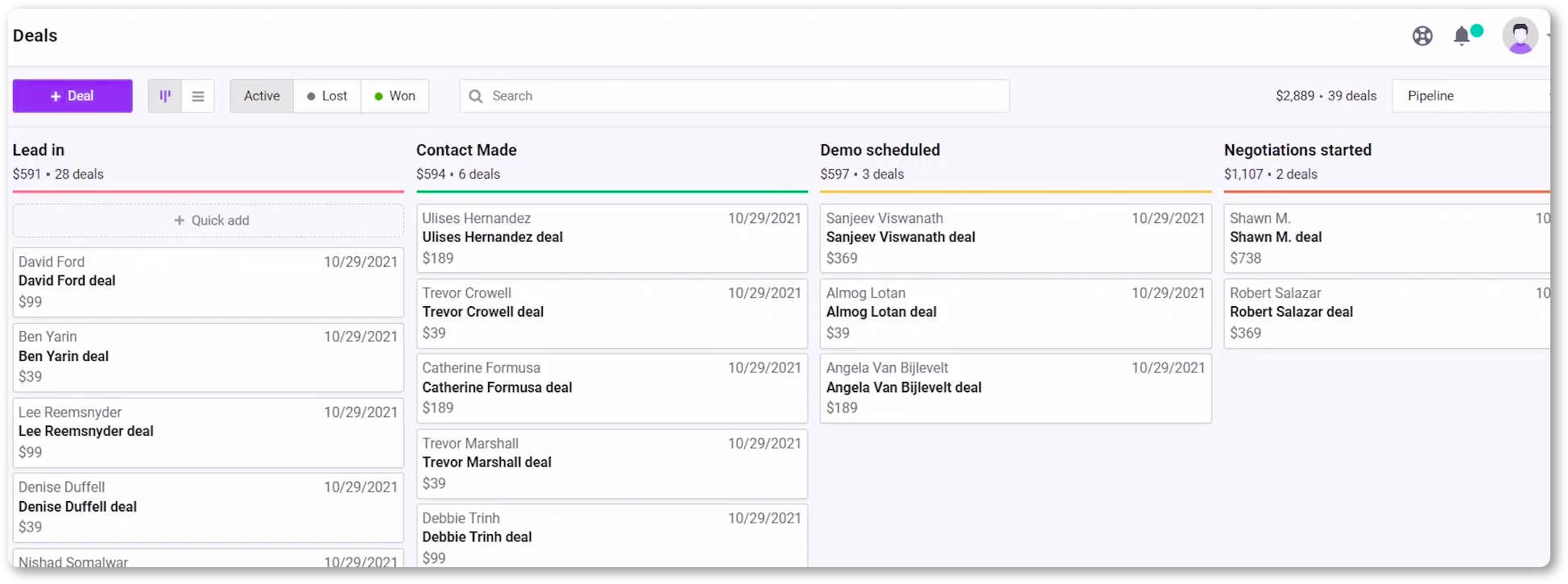
Snov.io CRM is a sales CRM with a user-friendly interface. With its help, you’ll be able to start organizing your lead base in a very short time, building custom pipelines, and easily managing your contact base, so that you can focus on the most promising deals.
Unite the efforts of all sales team members, which will help you significantly improve your performance. In Snov.io CRM, you can share notes and templates with your colleagues, assign responsible participants to specific leads, and track the progress of individual employees, for example, in meeting KPIs.
Additionally, you can use other tools offered on the Snov.io platform, for example, a lead generation service (Email Finder) for automatically filling a sales funnel, a tool for checking email addresses for validity (Email Verifier), or a solution for sending automatic follow-ups (Email Drip Campaigns).
Price: Free.
Freshbooks
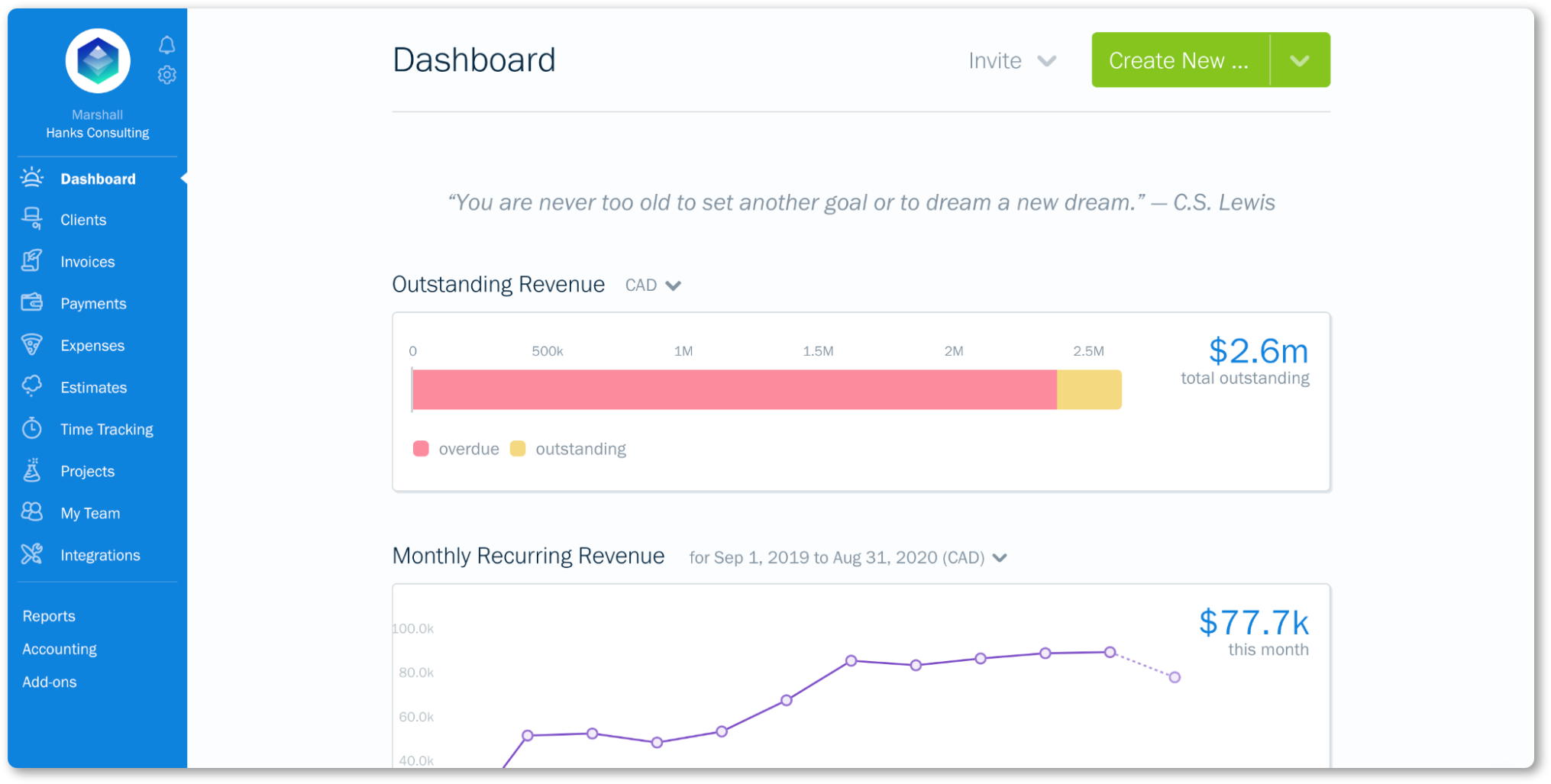
Using a feature-rich accounting platform like FreshBooks is something that will help accelerate your sales processes. It’s exclusively designed for business owners to assist in client relationships!
As a sales manager, you need business solutions that come with essential features like project collaboration capabilities, time tracking, and insightful reporting. FreshBooks will automate accounting for you to give you the data and the time you need to focus on the big picture — your business, team, and clients.
Price: 30-day free trial. Paid plans start at $15 per month.
Microsoft Dynamics 365
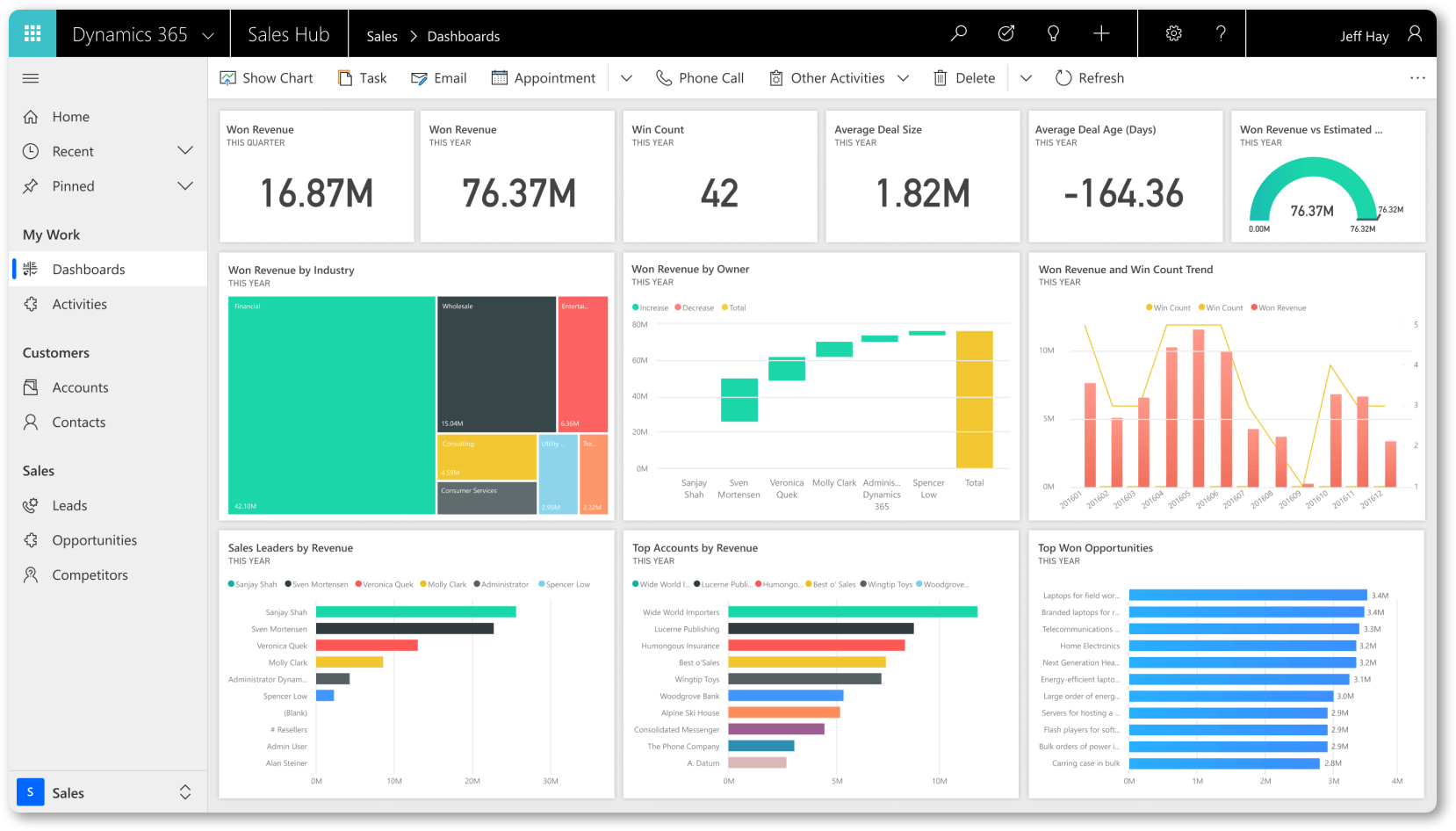
Microsoft Dynamics 365 is not a typical CRM software platform. It can integrate with your existing business systems to provide smart business solutions for your sales force. Its modern capabilities blend artificial intelligence with social and mobile capabilities to innovate consistently and improve sales processes.
What’s more, security is a critical concern when choosing sales management software. With its high-end security features, Microsoft Dynamics 365 users can extend their existing applications, innovate new solutions, and adopt improved ways of working.
Price: Paid plans start at $65 per month.
SalesForce
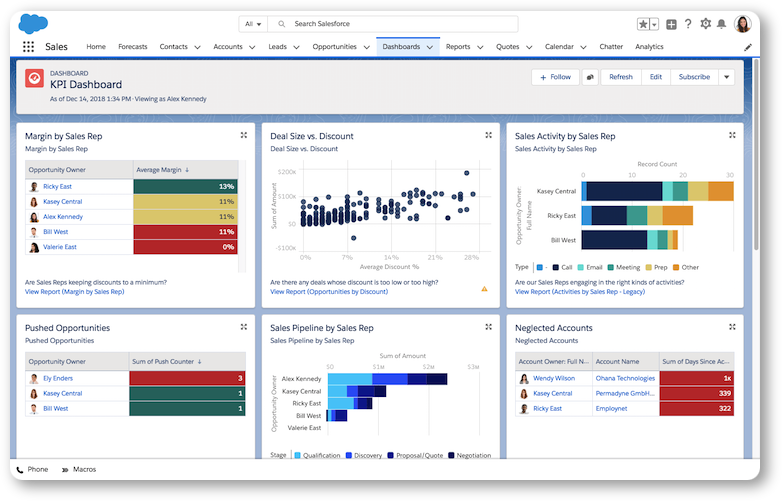
Salesforce is a good tool to have if collaboration and communication are your top priority. It’s primarily used by businesses spread across numerous locations to help users collaborate with their sales specialists and consultants with ease.
The unique thing about Salesforce is the way users can engage with employees, customers, and partners. Different communities on the platform encourage collaboration to boost your business’s ROI with seamless communication and management.
Price: 14-day free trial for Salesforce Essentials. Paid plans start at $25 per month (billed annually).
Zoho CRM
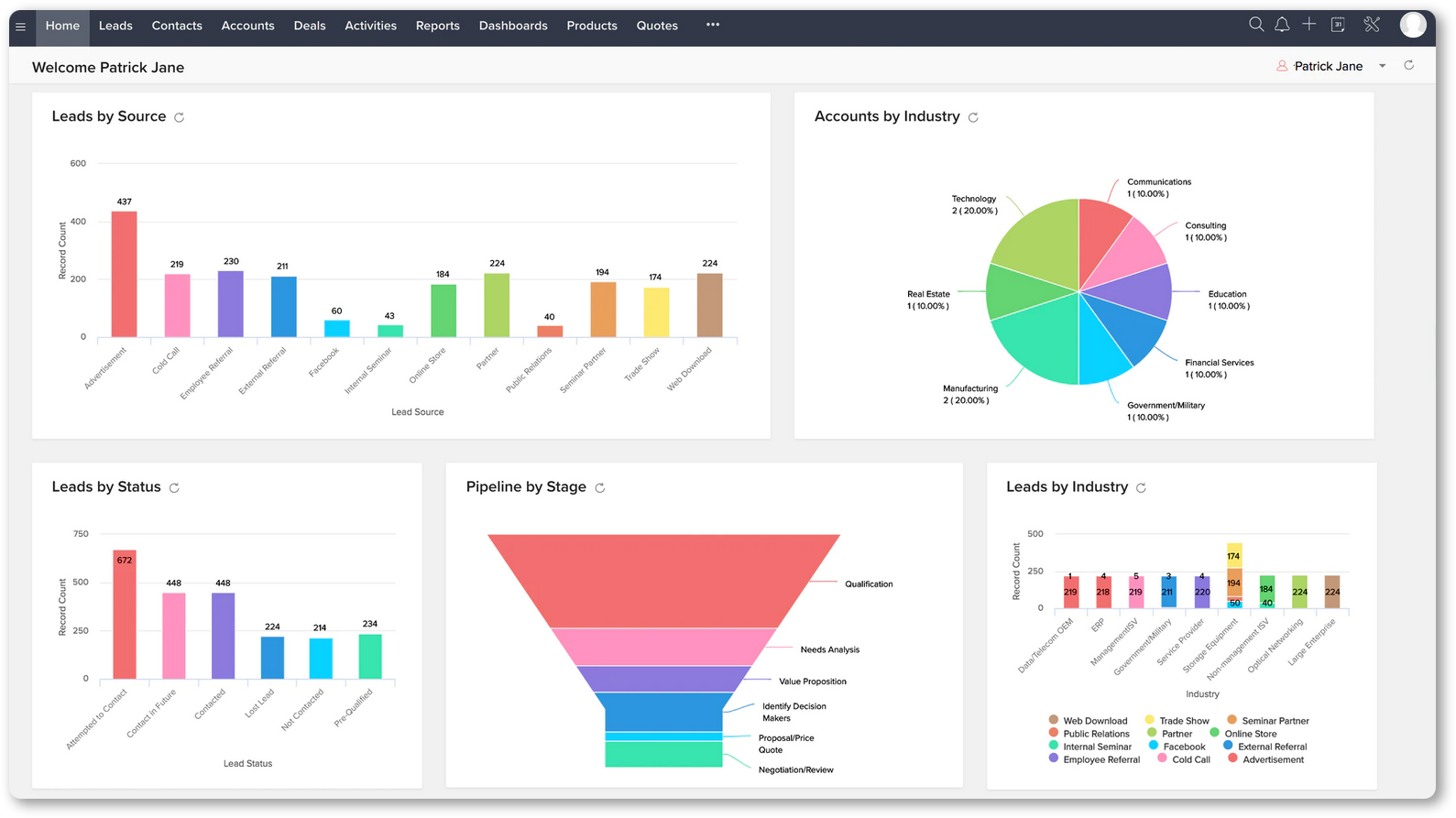
Zoho CRM is a popular CRM software that caters to businesses of all sizes. It can help connect your sales team with prospects at the right time and engage with them on multiple channels across different touchpoints.
Zoho’s CRM comes with performance and tracking analytics, sales process management for greater visibility and transparency, sales automation to increase efficiency and eliminate mundane tasks, and pipeline management to keep track of cold leads, hot leads, and potential prospects.
Price: 15-day free trial. Paid plans start at €20 per month.
Close
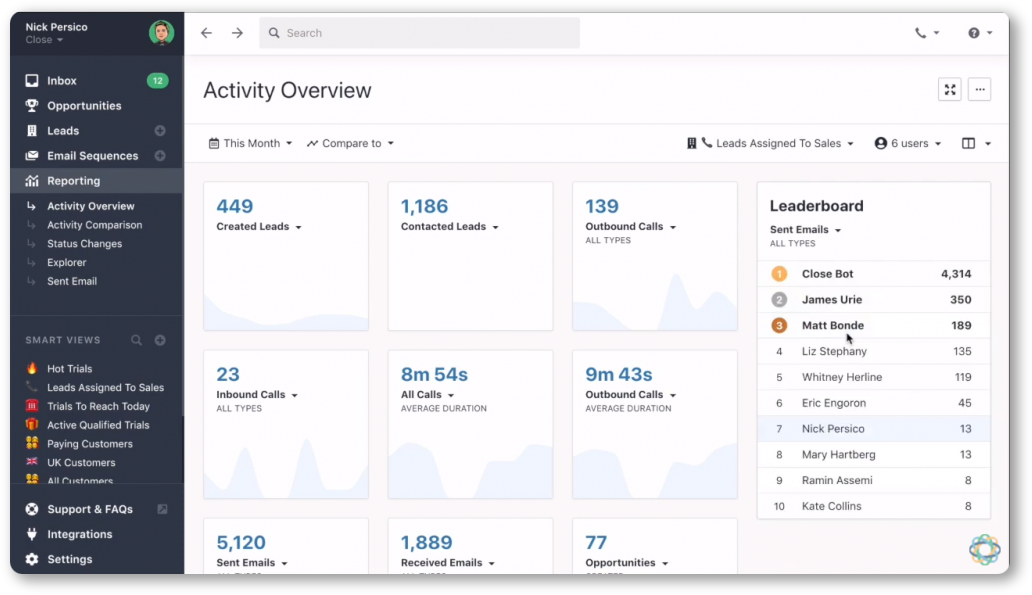
Tailored for small and medium businesses, Close is a powerful CRM and a sales management tool that helps you considerably increase the number of closed deals through automation. Namely, the software automates your sales outreach owing to its in-built email and dialing service.
Sales leaders love this tool for the possibility of improving your sales team’s productivity. With Close, you can onboard the sales team in minutes, analyze the workflow and KPIs, and gain revenue as fast as ever before. On top of that, it offers intuitive reporting features and integration capabilities, so you can sync it with your favorite tools and grow your sales power.
Price: 14-day free trial. Paid plans start at $29 per month.
Keap
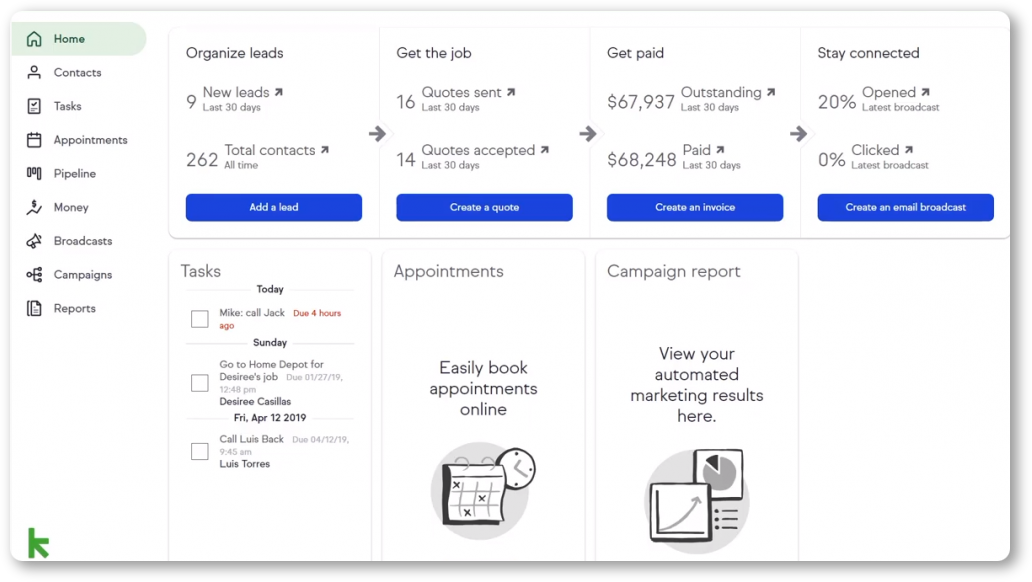
If you need an advanced solution for sales management, don’t pass by Keap. This powerful CRM helps you organize your sales process from beginning to end. You can take control of your daily tasks, ensuring your customer experiences are taken care of. Keap helps you streamline customer communication and offers features that enable you to gather more leads.
As a sales leader, you don’t need to worry about chaos in a team. With this software, you can keep all information organized in one place with transparency to all team members and clear visibility into their performance.
Price: 14-day free trial. Paid plans start at $79 per month.
Nutshell
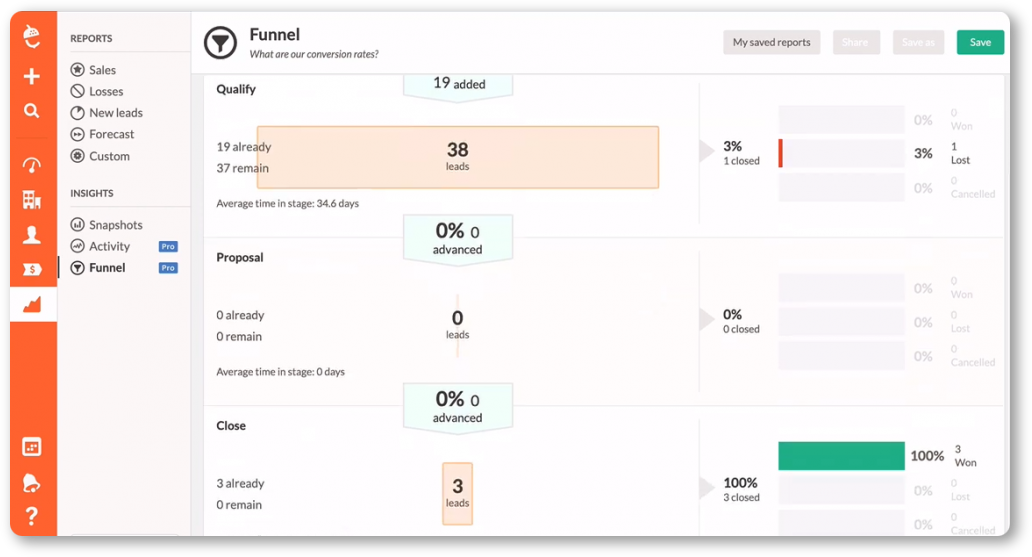
This is your stress-free sales management platform with robust CRM and email marketing automation capacity. But what makes it great is that it’s a comparatively easy-to-use solution for optimizing your sales team efforts and encouraging collaboration. You can use this software for both outbound and inbound sales and enjoy how it automates your daily chores.
Being one of the most flexible platforms for B2B sales tracking, Nutshell offers great functionality for lead and deal management, customizable instant reports, and wonderful opportunities for team collaboration. The software stores all your communications and enables sales reps to get aboard whenever their help is needed.
Price: 14-day free trial. Paid plans start at $27 per month.
What tool is your pick?
Benefits of sales management software for your business
Regardless of what sales management system you choose, get ready to enjoy the amazing advantages that come with it!
Accuracy in sales forecast
Often, misleading information is recorded, leading to inaccurate sales forecasting. However, with sales management software, sales managers can record sales data efficiently to make accurate forecasts. It can also help manage and organize data for you to understand better.
More flexibility
Sales software can make it easy for sales reps to view assigned leads. Instead of waiting for their supervisor to get updates on the lead progress, employees can manage and view the leads themselves anytime they want using their smartphones. This way, sales reps won’t even have to delay meetings to consult their supervisors.
Highly efficient sales cycle
Since all leads are prioritized in sales management software, salespeople can see which leads deserve more attention. They can also monitor the status of each prospect and view their position in the sales funnel in real-time. This makes it simpler for sales reps to manage all sales funnel stages and add or edit leads according to their status.
Better segmentation
One of the hardest parts of the sales process is categorizing sales effectively. In addition to distinguishing hot leads from cold leads, prospects also have to be segmented into groups. For example, this segmentation could be done according to age, interests, hobbies, etc.
In sales and marketing, segmentation can help sales reps focus on targeted sales campaigns for each segment, making the pitch more personalized and tailored according to customers’ likes and dislikes.
This, in turn, allows sales representatives to analyze their sales process and see which segment is doing the best, which needs more effort, and which segment needs more investment.
Better analyzed lead sources
All leads that you get in your sales pipeline can give you a potential ROI. This is derived from whether you have obtained them through Google Ads, SEO, telemarketing, newsletters, etc.
Once you can identify where you are getting the most leads, allocate all your resources and money towards that source. This way, you can use your investment efficiently and not spend it on ineffective lead sources.
Enhanced internal collaboration
There is a lot of information to keep track of when it comes to managing your sales prospects. For example, your sales team has to monitor which marketing channels are the most effective in driving sales, where most of the budget goes, how many different types of prospects your marketing campaigns bring in, and how to categorize them.
However, keeping track of all this information can be haphazard and increase the risk of errors.
With sales management software, you can summarize all this information effectively and present it in an easy way for everyone to understand. It also gives transparency to every sales rep to look into the prospect they’re dealing with, saving sufficient time that might otherwise have been spent on unnecessary meetings.
As such, sales management software also improves collaboration between team members, ensuring that everyone is aware of their task, helping to deal with prospects, and delivering projects on time.
Anything else?
As technology advances and businesses become more digitized, it gets increasingly harder for professionals to keep track of their online and offline customers. This may cause delays in action, late responses, improper decision-making, and a disorganized database.
Sales management software allows sales representatives and managers to monitor and manage their online and offline interactions. With an automated sales management tool, you can easily track every prospect’s progress and deal with mundane tasks to increase efficiency and productivity.
The segmentation between online and offline leads can also help sales reps make personalized campaigns and better prepare to answer their queries.
Wrapping up
With the right sales management software, it becomes possible to streamline tasks for sales reps and increase cooperation between them. This way, you get to ensure that things happen on time, entice your prospects, boost your sales, engage with customers, train your sales team, improve communication and collaboration with clients, and ultimately achieve your sales goals.
When choosing the tool from the list detailed above, be sure to include your sales team in the decision-making process. Ask for their suggestions about what they need in their operations and choose the best solution for your business.
Also, consider the operational inefficiencies of your existing processes to ascertain what you want from the sales management software. Besides, your budget comes into play because you want to use the same platform for the long term instead of disrupting the workflow by getting a new tool every year because it’s cheaper.
Finally, remember that it’s easy to get caught up in all the fantastic things sales software can do for you. But start simple. Invest in the basic version and scale-up alongside your business.




